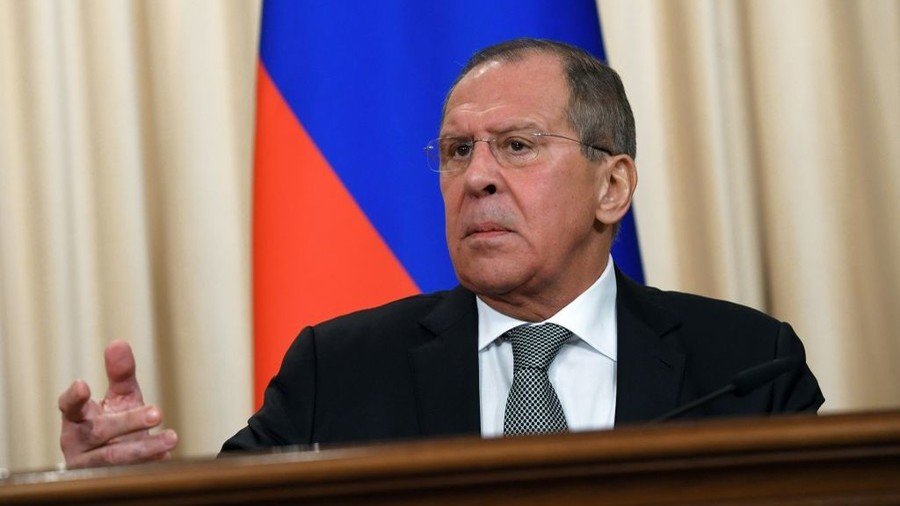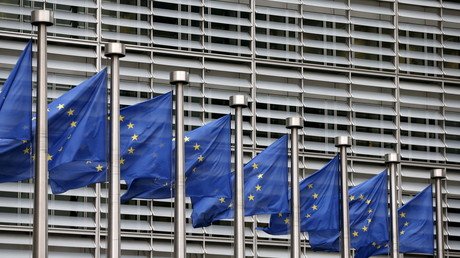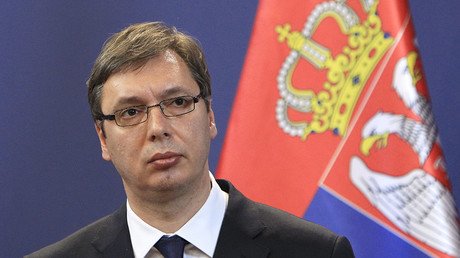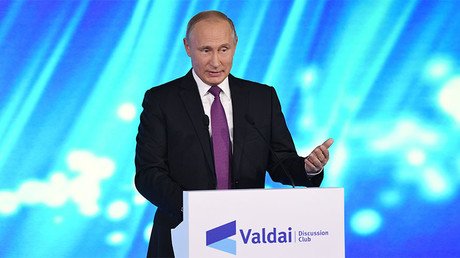‘Wicked practice’: EU pushes Balkans to choose either West or Russia, says Lavrov

EU’s demands for the Balkan states to choose between the West or Russia are counterproductive and only increase tensions on the European continent, Russian Foreign Minister Sergey Lavrov told Serbia’s Beta news agency.
Ukraine was presented with same dilemma, Lavrov said, which “eventually led to a fracture in the Ukrainian society and state; caused an unconstitutional coup (in 2014) and the rise of radicals, including Neo-Nazis, in the internal political affairs of the country.”
“Now they want to drag the Balkans into this same game, making them choose whether they are with the West or with Russia,” he warned.
The EU’s Balkan expansion plan foresees the inclusion of both Serbia and Montenegro into the bloc by 2025 if the countries meet certain conditions. Among other things, Belgrade is required to normalize relations with Kosovo, which unilaterally declared independence from Serbia in 2008, and bring its foreign policy into line with those of the EU.
The European Union’s demands for Serbia to accept the anti-Russian component of the bloc’s foreign policy are “sad and upsetting,” Lavrov said ahead of his visit to Belgrade. This approach by Brussels “contradicts all our joint statements made after the Cold War ended… that one shouldn’t strengthen one’s own security at the expense of others. This is what they are trying to do, as I have said, by working to integrate the Balkans into the policy of dividing lines; the policy of surrounding Russia with the military infrastructure of NATO.”
“This is a manifestation of the same philosophy and mentality that contributes to the tensions in Europe; that guided those who were expanding NATO and made Ukraine and European countries choose whether they are with the West or with Russia. It is a wicked practice,” the FM said.
Countries like Russia, China and Turkey want to work in the region on an “open, constructive basis, but we see attempts by the US and the EU to introduce anti-Russian elements in its Balkan policy,” he said. According to the minister, Russian diplomats never tell their counterparts that they shouldn’t make friends with the West. “But Washington and some European capitals send their emissaries to the Balkans with a specific message: ‘Do not be friends with Russia; refuse cooperation with it in all possible areas.’”
At the same time, Lavrov pointed out that Russia does not “see any risks in the desire of the nations of the Balkan region and other countries on the European continent to develop relations with the EU, including joining it. They are presented with the terms of entry and they themselves must decide how satisfactory those conditions are and how they match their national interests.”
Serbian aspirations to join the EU have been discussed with the country’s President, Aleksandar Vucic, and “he never said that it would be done at the expense of Russia. On the contrary, he stressed that the Russian vector of the foreign policy and cooperation would remain very important for Serbia. I am sure that this is in the interest of the Serbian people,” Russia’s top diplomat said.
READ MORE: Balkans trap: As Serbian president goes to Russia, US plots to ‘finish the job’
Lavrov went on to praise the “pragmatic approach” of the Serbian authorities, which is aimed at taking advantage of connections “both in the West and the East.”
“One shouldn’t think about creating closed alliances, be it in military, political or economic spheres. We need to look at things beyond the four-year horizon until the next election in this or that European country, and see perspective. That perspective, I think, is a very positive one, if we are all guided by interest in joint work, for the benefit of our own citizens in each individual country and on the European continent as a whole. It seems to me that this is what the Serbian leadership’s approach comes from,” he said.















